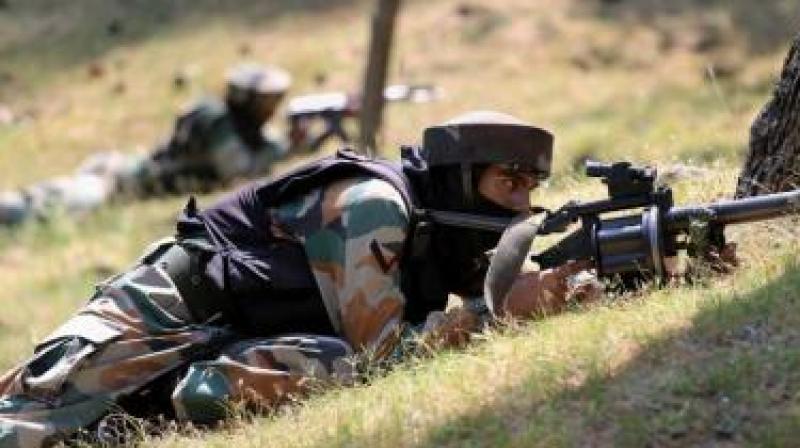Srinagar: Infiltration along the Line of Control with Pakistan in Jammu and Kashmir has reduced substantially, said the Indian Army’s commander in Kashmir Lieutenant General BS Raju, pointing that a lot of efforts, including use of drones, have been put in by ground troops to dominate the area.
The Line of Control is a de facto border between India and Pakistan in the region of Kashmir.
Last year, there were 130 infiltrations that took place and this year 27 have been reported till date.
The 15 Corps General Officer Commanding Lieutenant General B.S. Raju said that on Line of Control things are “quiet”. “We have been able to stop infiltration substantially. That’s a combination of a lot of efforts put in by ground troops to dominate the area,” said the officer adding that additional strength has been placed along the infiltration grid.
“We have given them additional surveillance, more technology. We are using drones to monitor the movement of people. Both big and small drones,” he said.
The officer explained that there is no desire on part of Pakistan to stop infiltration. “The attempts of infiltration are continuing,” Lt Gen B.S. Raju said.
Now, the forces are getting inputs that Pakistan-based terrorists are telling the ISI that they are unable to cross the Line of Control.
There are reports coming in that terrorists are saying that they are making efforts to cross the Line of Control but are being blocked. They want to return to the terror launch pads but Pakistan is saying there is no coming back and pushes them to go forward.
As far as ceasefire violations are concerned there was a little peak but the scale has come down, the officer said. The calibre escalation is kept in control. This helps in the counter-infiltration grid. It also gives respite to our own population. We had some fatal casualties also. However, the Line of Control remains in control,” he said.
India has placed a multi-tiered infiltration grid along Line of Control. “We have made the first grid very strong. If the first grid is strong it will help in stopping the infiltration and it also gives a chance of detecting infiltration,” he said.
The officer explained that once the people can flag that infiltration has happened, the second grid becomes active and the routes are blocked and hunting for them starts.
“We have made more deployments at the first grid and also put in low-cost surveillance equipment along the 407.31 kilometres fences,” Lt Gen B.S. Raju added.
This has resulted in more detection leading to foiling the infiltration attempts.
IANS
